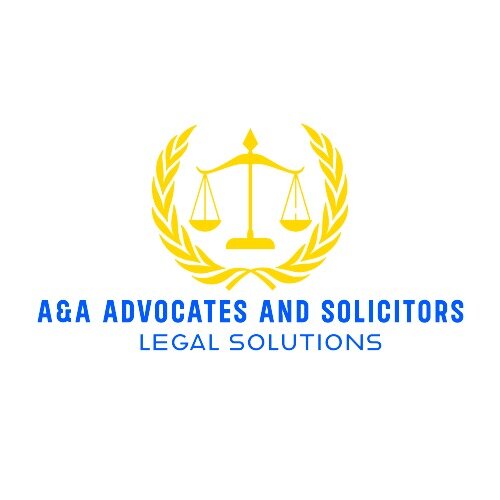Best Information Technology Lawyers in Accra
Share your needs with us, get contacted by law firms.
Free. Takes 2 min.
List of the best lawyers in Accra, Ghana
About Information Technology Law in Accra, Ghana:
Information Technology (IT) law in Accra, Ghana regulates the use of technology, electronic communications, and digital data. It covers a wide range of issues such as data protection, cybersecurity, intellectual property rights, and e-commerce. As technology continues to evolve, the need for legal guidance in the field of Information Technology becomes increasingly important.
Why You May Need a Lawyer:
There are several situations where you may require legal help in Information Technology. This could include drafting and reviewing contracts related to IT services, resolving disputes over intellectual property rights, ensuring compliance with data protection laws, or defending against cybercrimes. A lawyer with expertise in Information Technology law can provide valuable guidance and support in navigating these complex legal issues.
Local Laws Overview:
Key aspects of local laws relevant to Information Technology in Accra, Ghana include the Data Protection Act 2012 (Act 843), the Electronic Transactions Act 2008 (Act 772), and the Cybersecurity Act 2020 (Act 1038). These laws govern the collection, processing, and storage of personal data, electronic transactions, and cybercrimes in Ghana. It is important to understand and comply with these laws to protect your rights and avoid legal liabilities.
Frequently Asked Questions:
1. What is the Data Protection Act 2012?
The Data Protection Act 2012 is a law in Ghana that regulates the processing of personal data and establishes the rights of individuals to control their personal information.
2. How can I ensure compliance with data protection laws?
You can ensure compliance with data protection laws by implementing data protection policies, obtaining consent before collecting personal data, and taking appropriate security measures to protect data.
3. What are the penalties for non-compliance with data protection laws?
Non-compliance with data protection laws can result in fines, prosecution, and reputational damage for organizations. It is important to take data protection compliance seriously.
4. What is the Electronic Transactions Act 2008?
The Electronic Transactions Act 2008 provides legal recognition for electronic transactions, electronic signatures, and electronic contracts in Ghana.
5. How can I protect my intellectual property rights in the digital age?
You can protect your intellectual property rights by registering your copyrights, trademarks, and patents, and taking legal action against infringement of your intellectual property.
6. What is cybercrime and how can I protect my business from cyber threats?
Cybercrime refers to criminal activities conducted over the internet, such as hacking, phishing, and malware attacks. You can protect your business from cyber threats by implementing cybersecurity measures, training your employees, and staying informed about the latest cyber threats.
7. What is the role of a lawyer in Information Technology law?
A lawyer specializing in Information Technology law can provide legal advice, draft contracts, resolve disputes, and represent clients in legal proceedings related to technology and digital data.
8. How can I find a reputable Information Technology lawyer in Accra, Ghana?
You can find a reputable Information Technology lawyer by asking for recommendations, researching online, and contacting law firms that specialize in IT law.
9. What are the benefits of hiring a lawyer for Information Technology issues?
Hiring a lawyer for Information Technology issues can help you navigate complex legal issues, protect your rights, and avoid costly legal disputes. A lawyer can provide valuable guidance and support in all aspects of IT law.
10. How can I stay updated on changes in Information Technology laws in Ghana?
You can stay updated on changes in Information Technology laws in Ghana by following legal news, attending seminars and webinars, and consulting with legal experts in the field of IT law.
Additional Resources:
For additional resources related to Information Technology law in Accra, Ghana, you can visit the website of the Data Protection Commission of Ghana, the Ministry of Communications and Digitalization, and the Ghana Cybersecurity Centre. These governmental bodies provide information, guidance, and resources on data protection, cybersecurity, and electronic transactions in Ghana.
Next Steps:
If you need legal assistance in the field of Information Technology in Accra, Ghana, the first step is to consult with a reputable IT lawyer who can assess your situation, provide legal advice, and help you navigate the complex legal issues related to technology and digital data. Take proactive steps to protect your rights, comply with local laws, and safeguard your business from potential legal risks in the digital age.
Lawzana helps you find the best lawyers and law firms in Accra through a curated and pre-screened list of qualified legal professionals. Our platform offers rankings and detailed profiles of attorneys and law firms, allowing you to compare based on practice areas, including Information Technology, experience, and client feedback.
Each profile includes a description of the firm's areas of practice, client reviews, team members and partners, year of establishment, spoken languages, office locations, contact information, social media presence, and any published articles or resources. Most firms on our platform speak English and are experienced in both local and international legal matters.
Get a quote from top-rated law firms in Accra, Ghana — quickly, securely, and without unnecessary hassle.
Disclaimer:
The information provided on this page is for general informational purposes only and does not constitute legal advice. While we strive to ensure the accuracy and relevance of the content, legal information may change over time, and interpretations of the law can vary. You should always consult with a qualified legal professional for advice specific to your situation.
We disclaim all liability for actions taken or not taken based on the content of this page. If you believe any information is incorrect or outdated, please contact us, and we will review and update it where appropriate.









